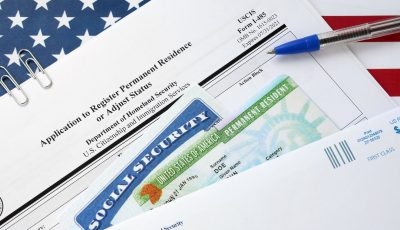Supreme Court to consider petition in birthright citizenship case
Historic opportunity for reconsideration of the Plessy-Era Insular Cases

Samoan Federation of America President Loa Pele Faletogo. (Contributed Photo)
Prominent Supreme Court attorney Theodore B. Olson yesterday filed a reply brief before the Supreme Court in Tuaua v. United States, a case addressing birthright citizenship and whether the Insular Cases should continue to be relied upon to deny constitutional rights in U.S. territories.
Seeking review before the court are a group of passport-holding Americans, born in American Samoa, who are denied recognition as U.S. citizens by federal statute—even as American Samoa has the highest rate of military service in the nation.
Last June, the D.C. Circuit held in an opinion authored by Judge Janice Rogers Brown, and joined by Senior Judges Laurence H. Silberman and David B. Sentelle, that the meaning of the Citizenship Clause was “ambiguous” as to whether its guarantee of birthright citizenship applied in overseas U.S. territories. The panel’s opinion also broadly expanded the reach of the Insular Cases, a series of controversial Plessy-era decisions that were grounded in racial bias. In doing so, it held that rights recognized as “fundamental” in other parts of the United States may not apply in so-called “unincorporated” U.S. territories, a label created by the Supreme Court in the Insular Cases based on its view that these islands were populated by “alien races” with “fierce, savage and restless people.”
“That the government is forced to rely on a radical enlargement of the Insular Cases to justify denying application of the Citizenship Clause in U.S. territories speaks to the importance of Supreme Court review,” said Mr. Olson, who represents the Tuaua petitioners. “We hope that the Supreme Court will accept review to once again make clear that Congress has no power to turn off or redefine the Constitution’s guarantee of birthright citizenship.”
“The Supreme Court has the opportunity now to once again make clear that the Citizenship Clause means what it says and to finally turn the page on the Insular Cases, which are relics of another era,” said Neil Weare, who argued the case before the D.C. Circuit, and is President and Founder of We the People Project, a non-profit organization that advocates for equal rights and representation for the over 4 million Americans living in U.S. territories. “Failure to grant review would place at risk the citizenship status and constitutional rights of more than 4 million Americans who live in U.S. territories.”
Earlier this month, the Solicitor General filed a brief arguing against Supreme Court review, relying in significant part on an Insular Cases opinion by Justice Henry Billings Brown—author of Plessy v. Ferguson—that did not receive the support of a single other Justice.
Also filing a brief against review of the DC Circuit decision was Professor John Eastman on behalf of scholars at the Center for Constitutional Jurisprudence, who have also spoken publicly about their support of Presidential candidate Donald Trump’s extreme views on birthright citizenship.
In March, an ideologically diverse array of academics, current and former officials from Puerto Rico, Guam, and the U.S. Virgin Islands, and civil rights groups filed a total of seven amicus briefs urging the Supreme Court to grant review. These amici are represented by top national law firms and Supreme Court advocates.
The American Samoa government also filed a brief earlier this month opposing Supreme Court review based on the mistaken belief that recognition of citizenship would threaten cultural preservation laws—an experience not borne out in other territories where birthright citizenship is recognized by statute (as explained by amici from those areas). American Samoa’s current leaders also fail to recognize that attempts by American Samoa to seek legislative recognition of birthright citizenship decades earlier were unsuccessful.
“When our forefathers ceded sovereignty to the United States, they believed that in return we would be recognized and respected as U.S. citizens on equal status with other Americans. With Congress rejecting earlier attempts by our people to be recognized as citizens, the Supreme Court now has the opportunity, and I dare say even the responsibility, to answer whether our leaders were right,” said Charles Ala’ilima, a prominent American Samoan attorney who also represents the Tuaua petitioners.
Absent review by the Supreme Court, plaintiffs living in Washington State, Hawaii, and California will be unable to exercise their right to vote, even though they hold a U.S. passport. Loa Pele Faletogo, president of the L.A.-based Samoan Federation of America, a plaintiff in the case, explained, “If the Supreme Court does not take our case, the only way thousands of passport-holding, tax-paying American Samoans living in communities throughout the nation will be able to exercise their right to vote will be through the naturalization process. With naturalization costing nearly $700 and requiring a civics exam, these barriers to citizenship and voting rights amount to a poll tax and literacy test all rolled into one.”
The case has received significant commentary, including by Prof. Noah Feldman (here) and Prof. Steve Vladeck (here), among others. The case has also been featured in a Harvard Law School conference/book “Reconsidering the Insular Cases.”
HBO’s John Oliver also featured the case in a segment cited by the Ninth Circuit for its criticism of the Insular Cases (here). A mini-documentary released last year also explores the real-world impacts the denial of citizenship has had on American Samoan veterans living in the Los Angeles area.
Attached is the reply, petition for certiorari (which includes the decisions below) and other recent briefs; all the briefing is available here. An FAQ about the case is available here. (PR)



























